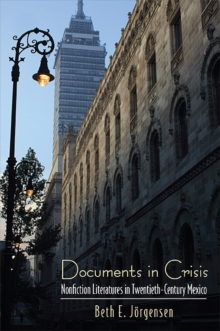
Kant's Dog : On Borges, Philosophy, and the Time of Translation EPUB
by David E. Johnson
Part of the SUNY series in Latin American and Iberian Thought and Culture series
EPUB
Description
Kant's Dog provides fresh insight into Borges's preoccupation with the contradiction of the time that passes and the identity that endures. By developing the implicit logic of the Borgesian archive, which is most often figured as the universal demand for and necessary impossibility of translation, Kant's Dog is able to spell out Borges's responses to the philosophical problems that most concerned him, those of the constitution of time, eternity, and identity; the determination of original and copy; the legitimacy of authority; experience; the nature of language and the possibility of a decision; and the name of God. Kant's Dog offers original interpretations of several of Borges's best known and most important stories and of the works of key figures in the history of philosophy, including Aristotle, Saint Paul, Maimonides, Hume, Locke, Kant, Heidegger, and Derrida. This study outlines Borges's curious relationship to literature and philosophy and, through a reconsideration of the relation between necessity and accident, opens the question of the constitution of philosophy and literature. The afterword develops the logic of translation toward the secret at the heart of every culture in order to posit a Borgesian challenge to anthropology and cultural studies.
Information
-
Download - Immediately Available
- Format:EPUB
- Pages:286 pages
- Publisher:State University of New York Press
- Publication Date:06/03/2012
- Category:
- ISBN:9781438442662
Information
-
Download - Immediately Available
- Format:EPUB
- Pages:286 pages
- Publisher:State University of New York Press
- Publication Date:06/03/2012
- Category:
- ISBN:9781438442662










